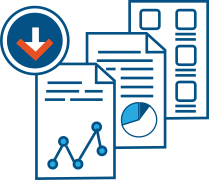Small Business Set-Asides, also known as SBA Set-Aside Programs, are procurement initiatives that reserve certain federal contracting opportunities exclusively for certified small businesses. Under the GSA Multiple Award Schedule (MAS) program, these set-asides enable agencies to meet socioeconomic contracting goals while giving small, disadvantaged businesses a competitive advantage in the federal marketplace.
Set-aside programs are administered in coordination with the U.S. Small Business Administration (SBA) and are a cornerstone of government-wide efforts to promote economic diversity, equity, and inclusion in federal procurement. Contractors that participate in these programs can access targeted opportunities and benefit from procurement preferences that increase their visibility and contract award potential.
Purpose of SBA Set-Aside Programs
The primary objectives of GSA small business set-aside programs are to:
- Expand access to federal contracts for small and underserved businesses
- Help agencies meet SBA-mandated socioeconomic goals
- Promote competition and innovation in the government supply chain
- Provide growth pathways for businesses in emerging or disadvantaged markets
- Streamline agency acquisition processes through pre-qualified, certified vendors
These set-asides play a critical role in the government’s ability to direct spending toward small businesses that meet specific eligibility criteria.
Major Small Business Set-Aside Categories
The following certified small business categories are eligible for GSA MAS set-aside opportunities:
1. 8(a) Business Development Program
- For small businesses owned by socially and economically disadvantaged individuals
- Participants receive sole-source and competitive set-aside opportunities
- Program administered by SBA; eligibility limited to nine years
- Commonly used for professional services, IT, and construction contracts
2. Woman-Owned Small Business (WOSB)
- For businesses at least 51% owned and controlled by one or more women
- Must be certified under SBA’s WOSB Federal Contracting Program
- Certain NAICS codes are designated for WOSB set-asides (including EDWOSB, or Economically Disadvantaged WOSBs)
- Eligible for reserved competitions and sole-source contracts
3. Veteran-Owned Small Business (VOSB)
- For businesses owned and controlled by U.S. military veterans
- Certification conducted through SBA (previously VA CVE program)
- Supports federal initiatives to increase veteran participation in contracting
4. Service-Disabled Veteran-Owned Small Business (SDVOSB)
- For businesses owned by service-disabled veterans
- Qualifies for set-asides and sole-source awards across many federal agencies
- Must meet ownership, control, and daily operations criteria
- Highly encouraged under VA, DoD, and DHS procurement goals
5. HUBZone (Historically Underutilized Business Zone)
- For small businesses located in federally designated economically distressed areas
- Must employ at least 35% of staff from HUBZone communities
- Offers access to set-aside and sole-source opportunities with price evaluation preferences
- Certified by SBA with annual eligibility recertification required
How Set-Asides Work Under the GSA MAS Program
Agencies using the MAS program can conduct set-aside procurements under specific SINs (Special Item Numbers) by restricting RFQs (Requests for Quote) to only those vendors that qualify under a given SBA category.
Key Features:
- eBuy: Agencies post RFQs as total or partial set-asides
- GSA Advantage!: Vendors display small business badges in catalog listings
- Filter by socioeconomic status: Buyers can limit searches by SBA category
- Contract clauses apply automatically when awards are made under a set-aside designation
- No new solicitation required—buyers can leverage pre-competed MAS contracts
Contractors must ensure that their socioeconomic certifications are current, valid, and reflected in SAM.gov, eLibrary, and GSA Advantage! to participate in set-aside opportunities.
Benefits for Contractors
Participation in SBA set-aside programs offers several strategic advantages:
- Access to exclusive competitions unavailable to large businesses
- Increased visibility and priority on eBuy and GSA Advantage!
- Greater teaming and subcontracting interest from large primes
- Fewer competitors per opportunity, increasing win rates
- Accelerated award cycles under simplified acquisition procedures
- Reputation building with agencies seeking to meet diversity goals
Many contractors begin their federal journey through these programs, using them to gain traction and expand into larger contracts over time.
Best Practices for Small Business Set-Aside Success
- Keep all certifications current and properly documented in SAM.gov and SBA databases
- Highlight your SBA designations on your GSA landing page, capability statement, and catalog
- Monitor eBuy and SAM.gov for set-aside opportunities relevant to your offerings
- Build relationships with agency small business offices and OSDBUs (Office of Small and Disadvantaged Business Utilization)
- Track and align your NAICS codes with those commonly used for set-asides
- Prepare proposal templates that emphasize past performance, capabilities, and differentiators within your SBA category
- Consider forming mentor-protégé partnerships or joint ventures under SBA’s All Small Mentor-Protégé Program
Role in Federal Procurement Policy
Small business set-asides are not just opportunities—they are policy tools. Federal law mandates that:
- 23% of all federal prime contracting dollars go to small businesses
- 5% go to WOSBs
- 5% to Small Disadvantaged Businesses (including 8(a))
- 3% to SDVOSBs
- 3% to HUBZone businesses
GSA’s MAS program supports these mandates by making it easier for buyers to fulfill small business goals through compliant set-aside ordering.
Conclusion
Small Business Set-Asides (SBA Set-Aside Programs) are vital instruments in leveling the playing field for small and socioeconomically disadvantaged businesses within the federal procurement system. Under the GSA MAS program, they provide eligible contractors with unique access to government contracts, while helping agencies meet diversity, equity, and inclusion objectives. For qualified small businesses, set-asides represent not just a competitive edge—but a strategic pathway to long-term success in the federal marketplace.


